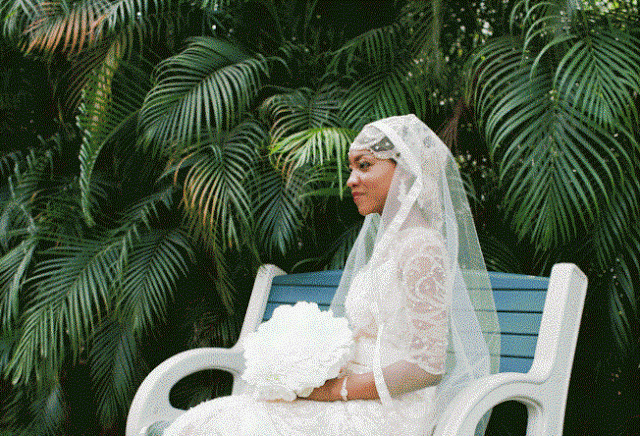Laylatul Qadr (the Night of Power) is described in the Quran
as, "better than a thousand months" (97:3). Any action done on this
night such as reciting the Quran, remembering Allah, etc. is better than acting
for one thousand months which do not contain the night of Qadr.
Allah's Messenger used to exert himself in devotion during
the last ten nights to a greater extent than at any other time." (Muslim).
Allah's peace and blessings be upon our beloved Prophet.
Aisha, May Allah be pleased with her, related that the
Prophet said: Look for Laylatul Qadr on an odd-numbered night during the last
ten nights of Ramadan (Bukhari). (21st, 23rd, 25th, 27th & 29th)
The Prophet said: "Whoever prays during the night of
Qadr with faith and hoping for its reward will have all of his previous sins
forgiven." (Bukhari and Muslim recorded from Abu Huraira).
Here are some tips of things we can do on the Night of Power
and the time before and after it.
1. Take a vacation for Allah.
We take a break from our jobs for almost everything in life.
Why not this time to focus on worshiping and thanking our Creator.
If this is not possible at least take a few days off if you
can. This can make it easier to stay awake at night to do extra Ibadah, not
having to worry about getting to work the next day. It will also facilitate
doing Itikaf.
2. Do I'tikaf.
It was a practice of the Prophet to spend the last ten days
and nights of Ramadan in the masjid for I'tikaf.
Those in I'tikaf stay in the masjid all this time,
performing various forms of zikr (the remembrance of Allah), like doing extra
Salat, recitation and study of the Quran. They do not go outside the masjid
except in case of emergencies, therefore, they sleep in the masjid. Their
families or the masjid administration takes care of their food needs. I'tikaf
of a shorter period of time, like one night, a day or a couple of days is
encouraged as well.
3. Make this special Dua.
Aisha, may Allah be pleased with her, said: I asked the
Messenger of Allah: 'O Messenger of Allah, if I know what night is the night of
Qadr, what should I say during it?' He said: 'Say: O Allah, You are pardoning
and You love to pardon, so pardon me.' "(Ahmad, Ibn Majah, and Tirmidhi).
The transliteration of this Dua is "Allahumma innaka
'afuwwun tuhibbul 'afwa fa'fu 'annee"
4. Recite the Quran.
Perhaps you can choose Surahs or passages from the Quran,
which you have heard in Tarawih this past Ramadan to recite.
If you attend a class where the recitation of the Quran is
taught, this is a great time to put your knowledge into practice.
5. Reflect on the meaning of the Quran.
Choose the latest Surah or Surahs you've heard in Tarawih
and read their translation and Tafseer. Then think deeply about their meaning
and how it affects you on a personal level.
6. Get your sins wiped out.
Abu Huraira narrated that the Messenger said: Whoever stands
(in prayer) in Laylatul Qadr while nourishing his faith with self-evaluation,
expecting reward from Allah, will have all of his previous sins forgiven.
[Bukhari and Muslim).
Don't just pray using the shorter Surahs that you know. Try
to make your prayers longer, deeper and meaningful. If you are familiar with
longer Surahs, read the translation and explanation and then pray reciting
these Surahs, carefully reflecting on the meaning while you pray.
Even if you are only familiar with the shorter Surahs, read
the translation and explanation beforehand, and then pray reflecting on the
message of the Surahs.
This is a good way to develop the habit of concentration,
even in regular prayers, where many of us tend to be fidgety and/or easily
distracted.
7. Make a personal Dua list.
Ask yourself what you really want from Allah. Make a list of
each and everything, no matter how small or how big it is, whether it deals
with this world or not. Allah loves to hear from us. Once this list is ready,
you can do three things:
Ask Allah to give you those things
Think about what actions you have taken to get those things
Develop a work plan to get those things in future.
8. Evaluate yourself.
Ask yourself those questions that need to be asked. Do an
evaluation of where you are and where you are going. Let this evaluation lead
you to feel happiness for the good you have done and remorse for the bad you
have done. This latter feeling should make it easier to seek Allah's sincere
forgiveness when making the Dua mentioned in tip number one above.
9. Make long, sincere and deep Duas
One of the best times to do this is during the last part of
the night.
Abu Huraira, may Allah be pleased with him, related that the
Prophet said: When the last one-third of the night remains, our Lord, the
Glorious One descends towards the heaven of the earth and proclaims: Who is
that who supplicates for Me, and I grant his supplication? Who is that who begs
Me for anything and I grant it to him? And who is that who seeks My
forgiveness, and I forgive him? (Bukhari, Muslim).
That means for instance, waking up one hour before Suhoor
time to ask Allah for anything and everything you want that is Halal. This can
be done using the Duas of the Sunnah, but also Dua in your own language, with
sincerity and conviction.
10. Memorize a different Dua every night
They don't have to be long. They can be just one line. And
be sure to know what they mean generally at least, even if you don't know the
exact translation in English.
You can put them on index cards (or and keep them with you
during the day, glancing at them during work, while driving, waiting in line,
etc.) Then practice them at night in prayer.
11. Have Iftar with the family
If you've spent Iftar time on weekdays in your cubicle at
work alone with a couple of dates, now is the last few days you'll have this
Ramadan to spend with your family. Use it wisely.
12. Take the family to Tarawih
Have your spouse and kids missed Tarawih most of Ramadan
because you weren't there to drive them to the Masjid, which is too far away to
walk to? If so, do all of yourselves a favour and bring everyone for Tarawih in
these last ten nights.
13. Attend the Dua after the completion of Quran recitation
Almost all Masjids where the Imam aims to finish an entire
reading of the Quran in Tarawih prayers in Ramadan will be completing their
recitation in these last ten nights. They may try to end on one of the odd
nights and read the Dua at the end of a reading of the Quran. Attend this
particular night's Tarawih prayer with your family. See if you can attend
different Masjids' Tarawih prayers the night they finish reading the Quran.
14. Finish reading a book on the Prophet
Read about the Prophet's life, which can increase your love
for him and Islam by seeing how much he struggled for Allah's sake. It may
inspire you to push yourself even harder during these last ten nights. This
community is built on sacrifice.
15. Plan for the next year
Once you've done a self-evaluation, you can plan on where
you want to go, at least in the next 12 months. Laylatul Qadr is a great night
to be thinking about this (without taking away from your worship), since you'll
Insha Allah, be in a more contemplative state. You may choose to dedicate one
night of power for evaluation and one night for planning for the next year.
16. To do list for the Night of Power
Make a to do checklist for each Night of Power. This should
define how you would like your night, the one better than a thousand months, to
be used. Pick things from this list and define the sequence you would like to
do things in. This will help you avoid wasting your time in unproductive chats
which common in the festive atmosphere of Masjids at the Night of Power.










-Innallah+ma+swabirina+(1).jpg)
.jpg)


.jpg)






.jpg)
























.jpg)
































.jpg)







